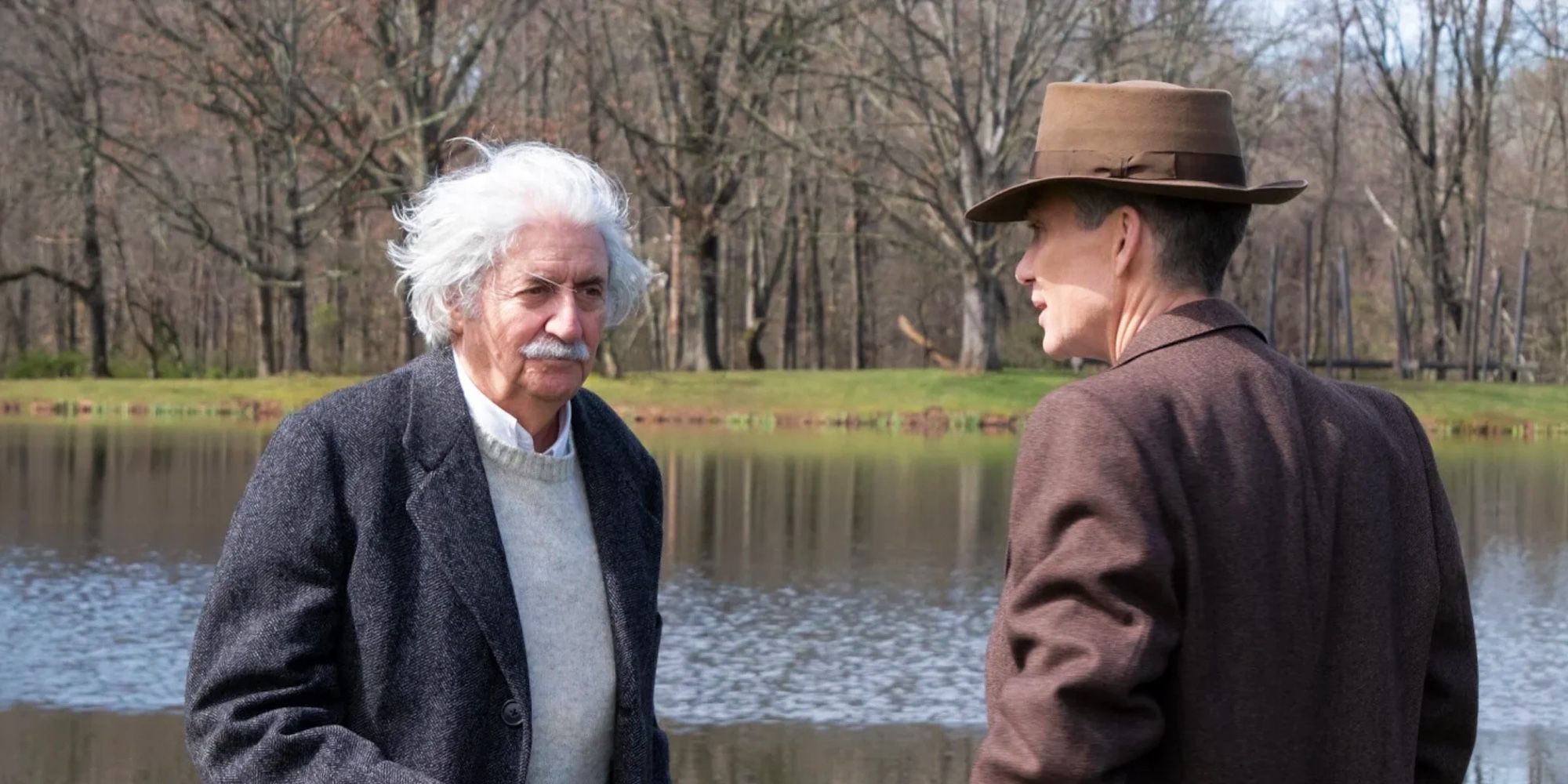Summary
- Albert Einstein was never directly involved in the creation of the atomic bomb due to his German ties and political stances, but his influence on its existence is undeniable.
- Einstein expressed his opposition to the atomic bomb and its devastating consequences, as he realized that its creation would continue to spread and intensify.
- While Einstein did not take responsibility for the Manhattan Project’s atomic bombs, his warning to President Roosevelt about Germany’s efforts in weaponizing atomic energy played a crucial role in the project’s birth.
While Albert Einstein is not a prominent part of the film Oppenheimer (nor did he work Manhattan Project), he is connected to the weapons inception, and there are a few documented instances of his viewpoints regarding the atomic bombs. Christopher Nolan’s ambitious movie, Oppenheimer, vividly recounts the historical narrative of the atomic bomb’s development and the subsequent events following its deployment. Within the film, there are brief glimpses of Einstein (Tom Conti), who is an integral part of the story.
Despite Einstein’s frequent association with the atomic bomb’s creation, he was never granted clearance to participate in the project due to his ties to Germany and his personal political stances. Due to concerns about his security risk, the United States opted to keep Einstein away from the project. Even though Einstein’s direct involvement in the weapon’s creation was absent, his influence on its existence is undeniable. However, Einstein consistently expressed his sentiments regarding the detrimental nature of the atomic bomb and emphasized his lack of responsibility for its creation.
Albert Einstein’s Reaction To The Bombing Of Japan
On August 6, 1945, the initial deployment of an atomic bomb occurred over Hiroshima, Japan, prompting Einstein to say, “Woe is me” (via American Museum of Natural History). Then on August 9, 1945, the United States dropped a second bomb on Nagasaki, Japan. By the end of 1945, an estimated 200,000 people had lost their lives between the two cities. Einstein, a staunch pacifist, demonstrated his commitment to peace during World War I by penning the Manifesto to the Europeans, wherein he advocated for peace in Europe through a political union.
His saying, “Woe is me,” in response to the bomb, signified his realization that the creation of such weapons would continue to spread and intensify, as more nations acquired these devastating weapons. Einstein was an icon of The International Peace Movement, which established itself between 1954 and 1963, aiming to eliminate warfare. In 1955, Einstein collaborated with Bertrand Russell, who was a British mathematician, philosopher, and logician to draft a manifesto. This significant document underscored the perils posed by nuclear weaponry, as it implored global leaders to pursue nonviolent resolutions to conflicts.
Albert Einstein Did Not Take Responsibility For The Manhattan Project’s Atomic Bombs
As seen in the movie Oppenheimer, Einstein kept his distance from the Manhattan Project and took no responsibility for the genesis of the atomic bomb. He reiterated on numerous occasions, “I do not consider myself the father of the release of atomic energy. My part in it was quite indirect.” Nevertheless, in 1939, he composed a letter to President Roosevelt, alerting him to Germany’s endeavors in weaponizing atomic energy. Subsequently, he expressed remorse for this action as Germany failed to create the weapon.
Upon the United States’ entry into World War II in 1941, Einstein’s council was heeded, culminating in the birth of the Manhattan Project. While Einstein lacked security clearance to actively engage in the project, the very foundation of its creation was linked to the renowned equation, E=mc^2 (which explains the energy released in an atomic bomb). While Einstein never took responsibility for the atomic bomb’s creation, the movie Oppenheimer underscores the inescapable truth, that without his warning to President Roosevelt, the realization of the atomic bomb might not have been attainable during that period.
Sources: American Museum of Natural History
#Albert #Einstein #Manhattan #Project #Real #Life














